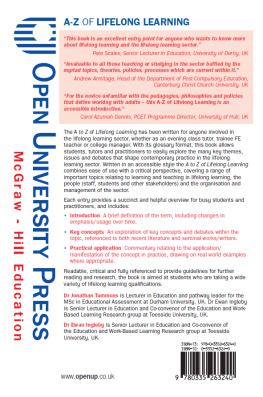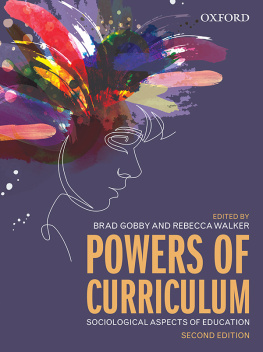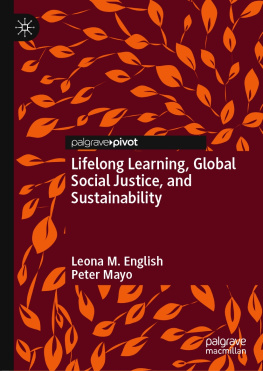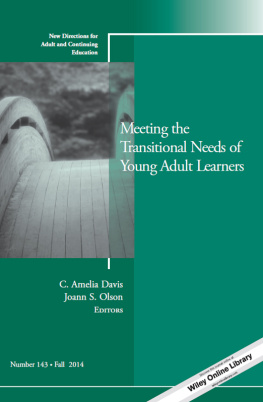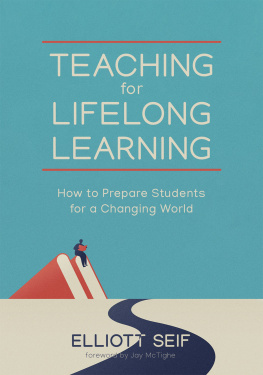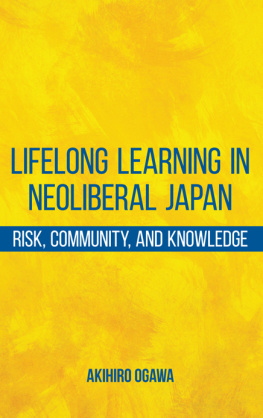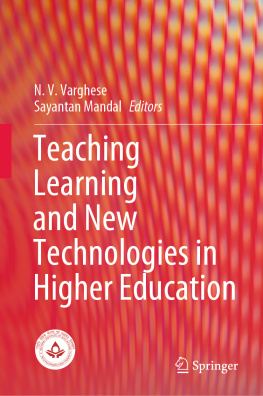Cover
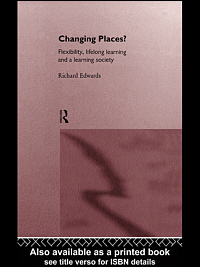
| title | : | Changing Places? : Flexibility, Lifelong Learning, and a Learning Society |
| author | : | Edwards, Richard. |
| publisher | : | Taylor & Francis Routledge |
| isbn10 | asin | : | 0415153409 |
| print isbn13 | : | 9780415153409 |
| ebook isbn13 | : | 9780203132029 |
| language | : | English |
| subject | Continuing education--Social aspects--Great Britain, Adult education--Social aspects--Great Britain, Postmodernism and education--Great Britain, Distance education--Great Britain, Open learning--Great Britain. |
| publication date | : | 1997 |
| lcc | : | LC5256.G7E34 1997eb |
| ddc | : | 373.941 |
| subject | : | Continuing education--Social aspects--Great Britain, Adult education--Social aspects--Great Britain, Postmodernism and education--Great Britain, Distance education--Great Britain, Open learning--Great Britain. |
Page i
Changing Places?
Flexibility has become a central concept in much policy and academic debate. Individuals, organisations and societies are all required to become more flexible and to learn so that they can participate in the ongoing processes of change.
This book explores how the notion of a learning society has developed over recent years: the changes that have given rise to the requirement for flexibility, and the changed discourses and practices that have emerged in the education and training of adults. With increased interest in adults as learners (primarily to support economic competitiveness), the closed field of adult education has now been displaced by a more open discourse of lifelong learning. This involves not only changing practices such as moving towards open and distance and workplace learning, but also changing identities for workers and learners. Learning settings are therefore changing places in a number of senses: they are places in which people change; they are subject to change; and they are changing to include the home and workplace as well as more formal settings.
This book takes an unusually critical standpoint: it challenges many contemporary trends, explores the uncertainties and ambivalences of the processes of change, and is suggestive of different forms of engagement with them. It will prove an important text for policy makers, workplace trainers and those working in the fields of adult, further and higher education.
Richard Edwards is currently a Senior Lecturer in post compulsory education at the Open University.
Page ii
This page intentionally left blank.
Page iii
Changing Places?
Flexibility, lifelong learning and a learning society
Richard Edwards

London and New York
Page iv
First published 1997
by Routledge
11 New Fetter Lane, London EC4P 4EE
This edition published in the Taylor & Francis e-Library, 2002.
Simultaneously published in the USA and Canada
by Routledge
29 West 35th Street, New York, NY 10001
1997 Richard Edwards
All rights reserved. No part of this book may be reprinted or
reproduced or utilised in any form or by any electronic,
mechanical, or other means, now known or hereafter
invented, including photocopying and recording, or in any
information storage or retrieval system, without permission in
writing from the publishers.
British Library Cataloguing in Publication Data
A catalogue record for this book is available from the British Library
Library of Congress Cataloguing in Publication Data
Edwards, Richard, 1956 July 2
Changing places: flexibility, lifelong learning, and a learning society /
Richard Edwards.
Includes bibliographical references and index.
1. Continuing educationSocial aspectsGreat Britain. 2. Adult
educationSocial aspectsGreat Britain. 3. Postmodernism and
educationGreat Britain. 4. Distance educationGreat Britain. 5. Open
learningGreat Britain. I. Title.
LC5256.G7E34 1997
373.941dc21 96-51856
CIP
ISBN 0-203-13202-5 Master e-book ISBN
ISBN 0-203-27745-7 (OEB Format)
ISBN 0 415-15339-5 (hbk)
ISBN 0 415-15340-9 (pbk)
Page v
In memory of my mother, Joy Edwards (19171994)
Page vi
This page intentionally left blank.
Page vii
Contents
Acknowledgements | ix |
| Introduction: Waiting for the post? | |
| Everything must change? | |
| Boundaries, field and moorland | |
| Flexible friends? | |
| Professionals, activists, entrepreneurs | |
| The/a learning society? | |
Bibliography | |
Index | |
Page viii
This page intentionally left blank.
Page ix
Acknowledgements
Debts, I have a few, but then again, too many to mention...
A text of this sort is inevitably the outcome of a range of influences, previous work and especially the support of people over a period of time. Charting those is itself a daunting task. However, there are specific factors which have made this particular text possible to which I wish to make reference. Two in particular have had an iterative effect on my work and thinking and encouraged me to engage with the processes of rethinking the present and future for the education and training of adults, to which this text is a further contribution.
The first factor is the work I undertook in 1994 and 1995 in working to prepare written distance education materials for the School of Education at the Open University, United Kingdom. This enabled me to engage with a wide range of literature on the education and training of adults and start to produce the conceptualisations and propositions which are explored here in greater depth and detail. Fundamental to that process were my colleagues on the course team. They both encouraged me in that process and challenged me to clarify my thinking. In the interests of students they also restrained me from developing some of the ideas that I have gone on to develop in this text. My thanks therefore go to Peter Raggatt, Ann Hanson, Nick Small and Sue Parker, all of whom in a variety of ways have been supportive towards me in recent years and who will recognise some of the ideas here as prefigured in Edwards et al. (1996) and Raggatt et al. (1996). They have demonstrated consistently that, despite difficult times, critical collegiality is still possible. Thanks also need to be extended to John Field, who provided a critical voice at a distance, challenging me to justify the stance I am adopting as preferable to the alternatives. Whether I have done so to his satisfaction is another matter. It is a dialogue to which we will no doubt return.
Next page

